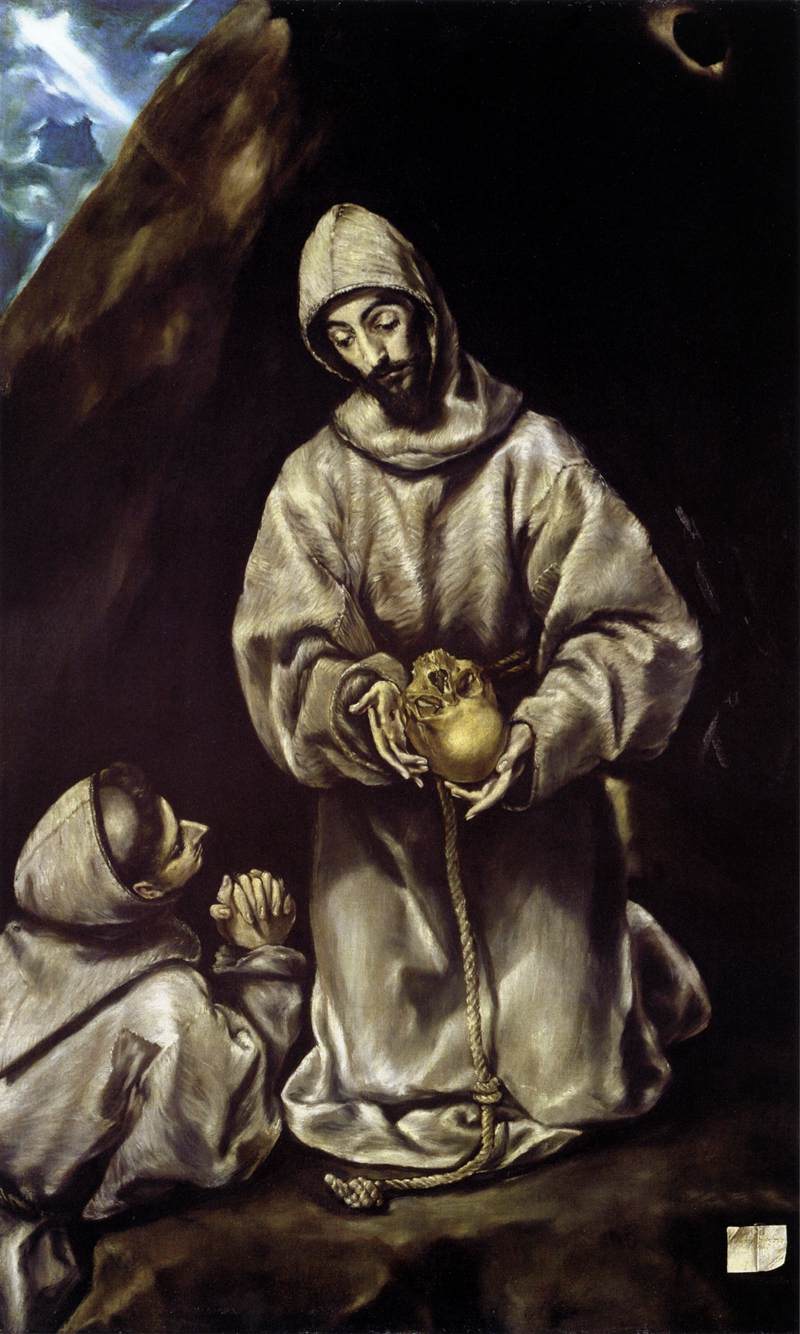
I realize that I am essentially working chapter by chapter in Saint Paul so for earlier references see;
Badiou's Saint Paul Chapter 1
Badiou's Saint Paul Chapter 2
Chapter three of Saint Paul addresses the context into which Paul's letters were written; that they were substantially prior than the writing of the gospels, that they were substantially different than the gospels, and how they came to be recognized as canonical.
In chapter four Badiou expands his account of Paul's two main referents, Jews and Greeks. What he sees Paul addressing is not two ethnic groups but two subjectivities or discourses (law and wisdom). Rather than adopting or adapting these discourses Paul initiates two other discourses. It is the third discourse that is the 'Christian' discourse properly speaking while the fourth (mystical) remains at the margins.
Badiou begins by explaining the Jewish and Greek discourses.
What is Jewish discourse? The subjective figure constituted by it is that of the prophet. But a prophet is one who abides in the requisition of signs, one who signals, testifying to transcendence by exposing the obscure to its deciphering. Thus, Jewish discourse will be held to be, above all, the discourse of the sign.
What then is Greek discourse? The subjective figure constituted by it is that of the wise man. But wisdom consists in appropriating the fixed order of the world, in matching of the logos of being. Greek discourse is cosmic, deploying the subject within the reason of natural totality. Greek discourse is essentially the discourse of totality, insofar as it upholds sophia (wisdom as internal state) of a knowledge of phusis (nature as ordered and accomplished deployment of being).
Badiou continues by saying that "Paul's profound idea is that Jewish dicourse and Greek discourse are the two aspects of the same figure of mastery." These divisive subjectivities at once dependent on and in conflict with each other not allowing for a universal presence. In order to proceed from this conflict an event is required which is "a-cosmic and illegal."
One may also say: Greek and Jewish discourse are both discourses of the Father. That is why they bind communities in a form of obedience (to the Cosmos, the Empire, God, or the Law). Only that which will present itself as a discourse of the Son has the potential to be universal, detached from every particularism. . . . That the son, and not the father, who is exemplary, enjoins us not to put our trust any longer is any discourse laying claim to the form of mastery.
For Badiou then Paul offers himself as neither prophet nor philosopher but apostle. And an apostle is one who is faithful to the even of the resurrection and who names the possibilities that this rupture implies. In this way Paul strictly speaking "knows nothing" (here Badiou cites 1 Cor 8:2). Focusing on Paul's words in 1 Corinthians Badiou sees the criteria for recognizing the event as that which puts language in deadlock. As such it is folly to the Greeks and a scandal to the Jews. Paul is understood to go so far as saying that God is not Being as being exists in the realm of these prior discourses. Badiou points to subversive statement in 1 Corinthians which says, "God has chosen the things that are not in order to bring to nought those that are." These is the abolition of all previous discourses. This is "pure beginning." There is no proof and no knowledge. This becomes the inherent 'weakness' in Christian discourse.
Badiou briefly outlines the 'fourth' discourse which the nondiscourse of mystical experience. This is significant for Paul but never a means for legitimation. The universal discourse must rather be a shared discourse of the event. In this way the 'weakness' of Christian discourse will not be relived through any 'hidden' force. To grant the fourth discourse primacy of place is to replace into the Jewish discourse of the sign. And so the fourth discourse will remain but marginal and essentially inactive in any public sense. Badiou understands the weakness of the third discourse to be what Paul refers to as the treasures in earthen vessels. Badiou concludes the chapter with some sense grandeur over this weakness,
The treasure is nothing but the event as such, which is to say a completely precarious having-taken-place. It must be borne in humbly, with a precariousness appropriate to it. The third discourse must be accomplished in weakness, for therein lies its strength. It shall be neither logos, nor sign, nor ravishment by the unutterable. It shall have the rude harshness of public action, of naked declaration, without apparel other than that of its real content. There will be nothing but what each can see and hear. This is the earthen vessel.
Whoever is the subject of a truth (of love, of art, or science, or politics) knows that, in effect, he bears a treasure, that he is traversed by an infinite power. Whether it not this is truth, of precarious, continues to deploy itself depends solely on his subjective weakness. Thus, one may justifiably say that he bears it only in an earthen vessel, day after day enduring the imperative - delicacy and subtle thought - to ensure nothing shatters it. For with the vessel, and with dissipation into smoke of the treasure it contains, it is he, the subject, the anonymous bearer, the herald, who is equally shattered.

No comments:
Post a Comment